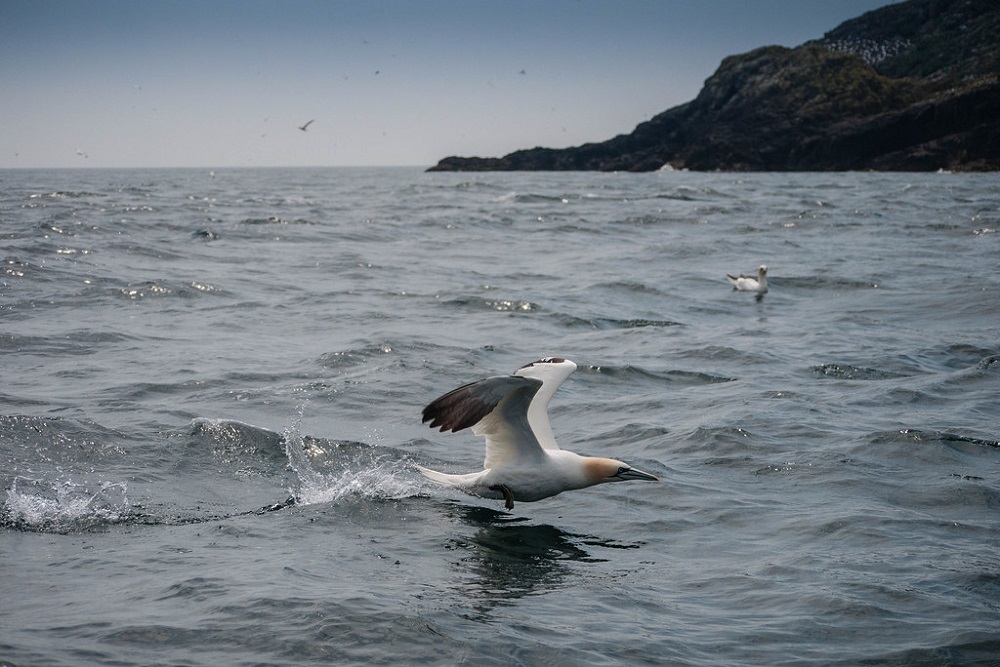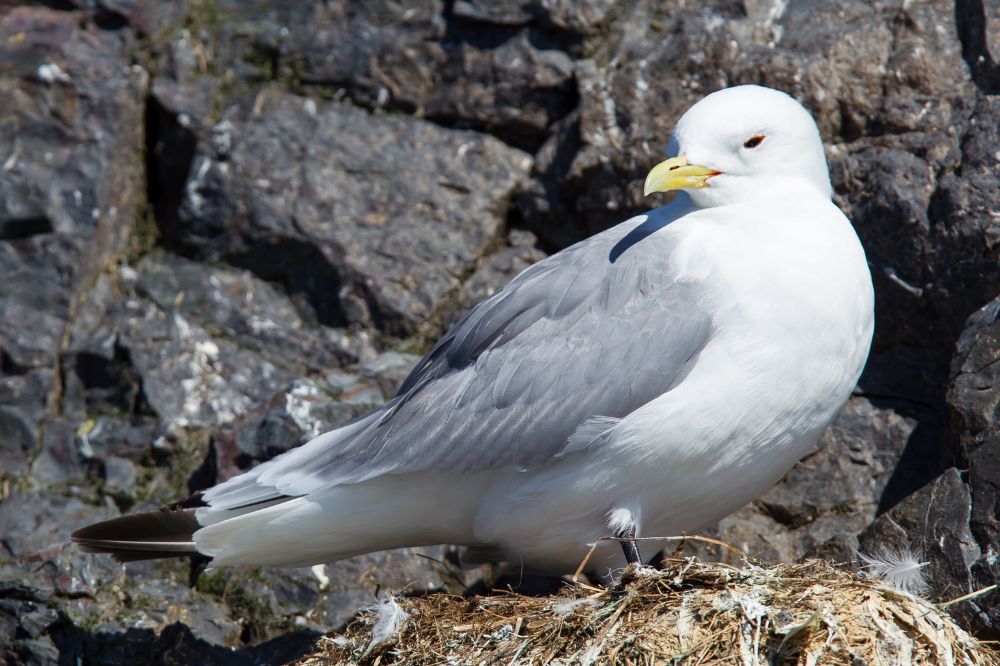Wales’ seabirds are in serious trouble

A new report released today has for the first time tried to quantify the impact of Highly Pathogenic Avian Influenza (HPAI) on UK seabirds.
Given the thousands of dead birds estimated, HPAI was assumed to be of significant conservation concern, but this new study has revealed the scale of the impact.
It shows that the impact of HPAI – known more commonly as bird flu – has completely reversed some of the positive trends revealed last year in the publication of the most recent national seabird census ‘Seabirds Count’.
International implications
Gannet, Common Tern and Sandwich Tern were three of eleven species that were increasing in numbers in Wales prior to the outbreak of HPAI, that was first recorded in the UK in 2021.
Today’s report reveals Gannets have suffered a catastrophic 54% decline in Wales since 2015, while numbers of Common Terns and Sandwich Terns have also declined by more than 40%. Wales held 10% of Britain and Ireland’s Gannet population meaning these declines have international implications.
Black-headed Gulls, a Red-listed species due to previous declines, suffered the biggest decrease (-77%) of any seabird species in Wales since the Seabirds Count census in 2015–21. In addition, Lesser Black-backed Gulls have also seen a 24% decline from natural nesting colonies.

The report also reveals that, at the sites surveyed, declines in other species such as Kittiwakes and Herring Gulls at natural nest sites – are continuing. These species were declining before the HPAI outbreak due to the myriad of other threats faced by Wales’ seabirds, but some have likely been additionally impacted by the disease.
Significant threat
HPAI emerged as a new and significant threat to UK seabirds in 2022. The seas they so vitally need and rely on are impacted by food shortages due to climate change, unsustainable fishing practices, invasive non-native species on islands, bycatch (drowning after being accidentally caught in fishing gear) and poorly sited offshore developments could pose a further risk.
Julian Hughes, Head of Species for RSPB Cymru said: “Wales’ seabird populations are internationally important, and today’s report adds further evidence, were it needed, of the urgent need to take action to save them.
“We welcome commitment by the Welsh Government to develop a Seabird Conservation Strategy for Wales. It is vital that the Strategy is published this year and dedicates funding for seabird conservation, influences how we use our seas and helps colonies to expand beyond current breeding sites to build wider resilience.
“These are critical to ensuring populations are better prepared for future events”.
Support our Nation today
For the price of a cup of coffee a month you can help us create an independent, not-for-profit, national news service for the people of Wales, by the people of Wales.








This is very sad ,but hopefully the fish the birds normally feed on will increase rapidly and the bird populations will quickly (a couple of generations?) develop some immunity and will then be able to take advantage of more food so they can maximise survival of chicks and increase numbers quickly before a new predator/prey equilibrium is established. That is perhaps being overly-optimistic given the generally degraded state of our oceans! A strategy is to be welcomed and must come with a funded action plan to include tackling over fishing, marine pollution, disturbance, impacts of renewable energy structures etc etc.… Read more »